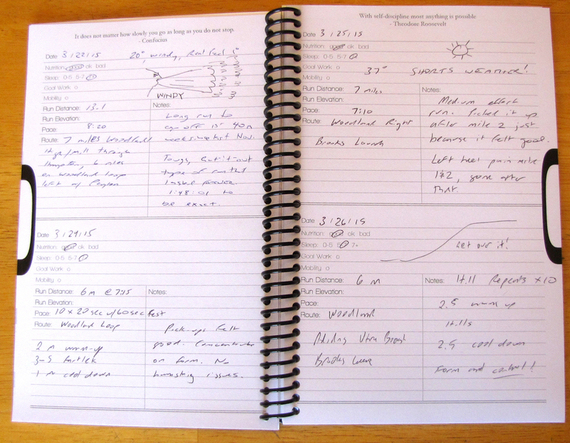Every runner should keep a running journal. Yeah, I know all about DailyMile, Nike Plus, Strava, and RunKeeper. They're all good for analytics, GPS mapping, numbers, and social connections. However, there's something intimate and remarkable that happens when you write your thoughts down by hand.
Consider the impact of the handwritten word. Love notes, holiday cards, and kindergarten projects all resonate with us because the handwritten word is a powerful form of expression. The paper has been touched by the hand of the writer. Their emotions have poured forth into their unique script with all the raw markings that show their urgency, passion, and elegance.
When you open a running journal it should remind you of what you love about the sport. Your journal should have amusing doodles in the margins and dog-eared pages that recount your greatest efforts or darkest days of injury. Any bound paper notebook will do, but a quality journal will implore you to leave your words on its pages.
10 Reasons Why You Should Keep a Running Journal
- Running is a solitary pursuit that leaves nothing behind but fleeting footprints. Recording your workouts in a journal gives them permanency and proof.
